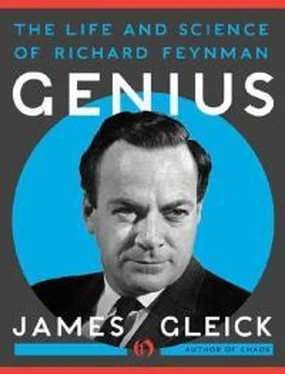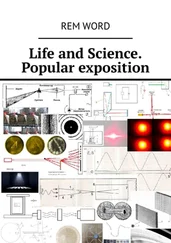2. clever (he thinks)
3. tal (very)
4. wel dressed (trim)
5. a dancer (From a whore in Mexico City)
6. a drummer (whow!)
7. personality plus (oh boy!)
8. smart (putting it mild)
9. conversation (good)
10. sweet (sometimes)
On professional trips overseas he seduced women so regularly that his hosts knew he expected them to make introductions. In London he would meet Pauline or Betty, in Paris Isabel e or Marina, in Amsterdam Marika or Genny.
He would see a woman for days and then file her farewel letter with the others:
My love for you is so great that I’m sure it would have brought us both a wealth of happiness … please always remember, when in the evening of your life …
that somewhere in the world there is me and that I love you. For I shal always remember you because you are the only person that I have felt at complete ease and sympathy with.
There were so many attitudes a woman could assume for a short-term love affair. His lovers would warn him jovial y not to break too many hearts, or they would wish him luck with al his projects “be they blonde or mathematical—or physical!” They would hint that they might appear on his
doorstep—that his “ sorcière ” might not know the way to the moon and stars but could find the USA—or implore,
“concerning your work hurry up to find an atomic broom which could fly from Europe to California in a couple of hours.” They would accuse him of preferring his own company—of a “Narcissus-of-the-mind complex.” They would wonder aloud what home real y meant to him—was he not a little lonely, after al ?
He was. His friends refused to understand why he final y chose to settle down with Mary Louise Bel of Neodesha, Kansas, who had met him in a Cornel cafeteria and pursued him—they said cattily—al the way to Pasadena and final y accepted his proposal by mail from Rio de Janeiro. They considered her a platinum blonde (“the girl with the cel ophane hair” was one unkind nickname that floated behind Feynman’s back) who wore white high heels and tight white shorts to picnics. They thought she was older than he was (the age difference was actual y just a few months). Even before they married, they quarreled by mail about how much they should spend on interior furnishings and how he looked in old clothes. She made clear that she did not usual y think scientists were much fun.
She had studied the history of Mexican art and textiles—
that was exotic enough to interest him. While he was in Brazil, she taught courses at Michigan State University in the History of Furniture and Institutional Interiors, mainly to men pursuing careers in hotel or restaurant management.
“The pattern is that the girl who teaches this course usual y marries one of those characters,” she told him.
They married as soon as he returned from Brazil, in June 1952, and they honeymooned in Mexico and Guatemala, where they ran up and down Mayan pyramids. He made her laugh, but he also frightened her with what she decided was a violent temper. She did not know what to think when, riding down a Mexican highway, she complained that the car’s sun flap was annoying her, and he pul ed out a
screwdriver and repaired it, with both hands off the wheel.
She gave his friends the impression that she did not altogether appreciate him. She wanted him to dress better; they discovered that they could tel whether she was near by looking to see whether he was wearing a necktie. She nagged him, they thought. She liked to tel people that he was not “evolved” to the point of appreciating music and that sometimes she thought she was married to an uneducated man with a Ph.D.
They moved from Feynman’s bungalow apartment near campus to a larger place in Altadena, just across Pasadena’s northern border. She resisted socializing with other physicists. Once he missed a chance to catch Niels Bohr while he was in Pasadena briefly; as he and Mary Lou were sitting down to dinner, she said that she probably should have told him, but someone had invited them over that evening to see an old bore. Political y she was an extreme
conservative,
unlike
most
of
Feynman’s
col eagues, and as the Oppenheimer security hearings began, she irritated Feynman by saying, “Where there’s smoke there’s fire.” He, too, voted Republican, at least for a while. Divorce was inevitable—Feynman realized early that they should not have children, he confided in his sister—but it was nearly four years before they final y separated.
By agreement he confessed to Extreme Cruelty—
has wilful y, wrongful y, and without provocation, justification or excuse whatsoever inflicted grievous physical and mental suffering … ; plaintiff has suffered great physical pain and grievous mental suffering, and has suffered physical nervous shock to the extent that further married life between plaintiff and defendant has been rendered impossible.
He agreed to a circumscribed alimony, a total of ten thousand dol ars over the next three years. She kept their
1950 Oldsmobile and al their household furniture. He kept their 1951 Lincoln Cosmopolitan, his scientific books, “Al Drums and Percussion Instruments,” and a set of dishes that his mother had given him. The divorce had a fleeting life in the national press—not because Feynman was a celebrity, but because columnists and cartoonists could not overlook the nature of the extreme cruelty: Prof Plays Bongos, Does Calculus in Bed. “The drums made terrific noise,” his wife had testified. And: “He begins working calculus problems in his head as soon as he awakens… .
He did calculus while driving his car, while sitting in the living room and while lying in bed at night.”
One day near Thanksgiving 1954, as Southern California’s winter neared with no discernible change of season, the smog had rol ed up from Los Angeles toward the northern hil s that cradled Pasadena, and for a moment their shared discontents had become too much. Feynman wrote to Bethe begging for his old job back. His eyes smarted from the smog; Mary Lou was complaining that she could not see the beautiful colors of the trees. He said he would take any salary—he surrendered unconditional y.
Soon afterward, someone rushed up to him with news of a discovery by Walter Baade, an astronomer at Mount Wilson Observatory up in the San Gabriel Mountains, demonstrating that the stars of the distant universe were several times older than anyone had established before.
Caltech in the fifties was becoming an international center of cosmological discovery. The same day, a young microbiologist told him of a discovery he had made, confirming the fundamental irreducibility of the DNA molecule as bacteria divide and divide again. With Linus Pauling and Max Delbrück on hand, Caltech had some of the leading lights of molecular genetics as the field was undergoing its sensational birth. Meanwhile, although Bethe had been thril ed by Feynman’s letter, he had to tel him that the most Cornel could offer on the spot was a temporary
appointment.
Feynman changed his mind again. That same fal , Enrico Fermi died, and the University of Chicago decided to do whatever was necessary to hire Feynman. Its dean of the Division of Physical Sciences, Walter Bartky, and a younger physicist, Marvin Goldberger, later to become president of Caltech, traveled westward on the Super Chief
—Bartky was afraid to fly—and took a taxi directly from the railway station to Feynman’s house. He refused to consider their proposition, and he begged them not even to tel him how much money they were offering. He was worried, he said, that Mary Lou would hear the amount and insist on moving. He had decided. He was going to stay at Caltech.
Onward with Physics
Читать дальше












